The Pyrenean mastiff is a large working dog from the Pyrenean region of northeastern Spain. Pyrenean mastiffs are also commonly referred to as Navarra mastiffs. These dogs shouldn’t be confused with Pyrenean shepherds or Great Pyrenees.
They are confident, calm, even-tempered dogs that grow to 27–31 inches tall and weigh 130–200 pounds. The average lifespan of this breed is 8–12 years.
The Pyrenean mastiff is suitable for couples and families with teenage children, but due to its large size, the dog is expensive to raise and isn’t suitable for apartment owners. They typically cost $1,000–$1,800.
TABLE OF CONTENTS
Pyrenean Mastiff Characteristics & Overview
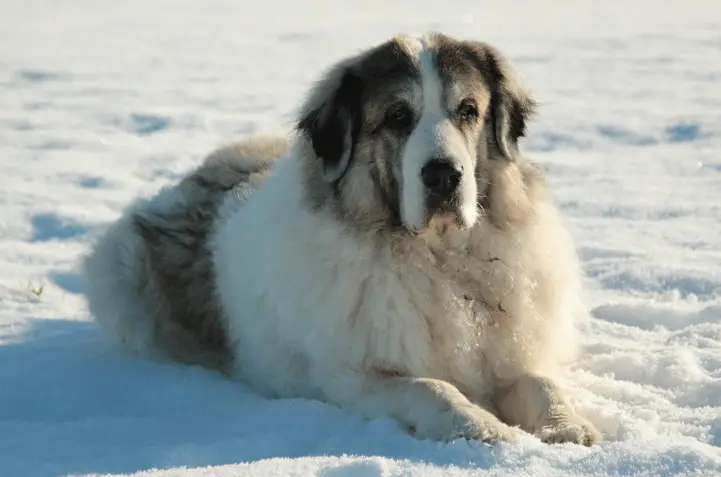
| Common names: | Pyrenean mastiff, Navarra mastiff, Spanish mastiff, mastín del Pirineo |
| Origin: | Spain |
| Breed group: | Working dog |
| Size: | Large |
| Height: | 27–31 inches |
| Weight: | 130–200 pounds |
| Colors: | White and beige, white and black, white and silver |
| Coat: | Thick, double coat, medium length |
| Life expectancy: | 8–12 years |
| Temperament: | Even-tempered, confident, calm, friendly, gentle |
| Shedding: | Heavy shedder |
| Barking tendency: | Average, more likely to bark during the night |
| Cost: | $1,000–$1,800 |
Origin & Purpose
The Pyrenean mastiff was originally bred as a working dog. These dogs first came into existence in the late 1800s and were responsible for transporting flocks of sheep to high pastures in the summer, and returning the flocks to low ground in the winter.
This breed’s job was to protect its flock from predators such as wolves and bears. Its protective nature makes it a good guard dog for families today.
Life Expectancy
The average life expectancy of a Pyrenean mastiff is 8–12 years. Factors affecting their life expectancy include breeding and genetics (such as whether the dog’s parents are prone to certain health conditions), diet and exercise, and whether the dog receives the appropriate healthcare when needed.
Pyrenean Mastiff Appearance
The Pyrenean mastiff is one of the largest dog breeds, with a heavy white coat, often with dark patches on the face and body. These dogs have furry, floppy ears and thick tails that curl at the tip.
Height and Weight
Pyrenean mastiffs are considered large dogs, with a height at the withers of 27–31 inches, and a weight of 130–200 pounds. Males grow 1–3 inches taller and weigh 10–20 pounds more than females.
At birth, the puppies weigh between 1.5 and 2 pounds. They grow slowly, and it takes 18–24 months for the dogs to reach adult size.
Colors
Pyrenean mastiffs are primarily white with tan, blue, red, beige, black, and silver markings. The most common color is white with beige markings on the head, ears, and neck. Pure white dogs are rare.
Coat
Pyrenean mastiffs have a double coat, with a thick, wooly undercoat and an overcoat of wiry, straight guard hairs. The main coat color is white, with dark markings on the head and the hindquarters.
Because their coat is long and wiry, the fur sheds, mats, and tangles easily, and needs regular grooming.
Head and Facial Features
The Pyrenean mastiff has a large, heavy head with a longer face than most other mastiff breeds. This dog has small, almond-shaped eyes, flat, triangular ears, and a broad neck.
This breed typically has a medium-sized snout ending in a flat black nose.
Personality and Temperament

The American Kennel Club describes the mastiff’s temperament as brave, noble, calm, independent, and intelligent. Pyrenean mastiffs are gentle, protective dogs that are rarely shy or aggressive.
Its gentle nature makes the dog ideal for families with children, although it should always be supervised because of its large size.
Although these dogs are even-tempered, they have a stubborn streak, especially when untrained, and become aggressive if they feel that their family is threatened. Only people with enough time to train a dog should own one.
Barking
Working Pyrenean mastiffs tend to bark often, especially during the night. However, in a family home, they only bark when they have a reason to, such as when they feel a presence of threat or danger.
These dogs rarely have unreasonable or uncontrollable barking habits, and they can be trained to stop barking if night barking is a problem.
Pyrenean Mastiff Care
Caring for a Pyrenean mastiff is easy as long as you have the space and the funds to look after this big dog breed. These dogs eat a lot, shed a lot, and need plenty of daily exercise.
Food Needs
An adult Pyrenean mastiff requires between 6 and 10 cups of high-quality kibble per day. Feed your dog three or four separate meals to keep the dog energized throughout the day and prevent bloating.
They thrive on high-quality foods designed for large dog breeds. The exact amount of food required depends on your dog’s size, age, and activity level, as well as the calorie content of the kibble.
Grooming Needs
Pyrenean mastiffs have high grooming needs. The dogs shed throughout the year and should be brushed at least once a week.
They need professional grooming, including a blowout and nail trimming, every four to six weeks. Trimming their fur keeps it from becoming matted and knotty.
Exercise Needs
The Pyrenean mastiff is a high-energy dog that’s always ready for play and exercise. Exercise this breed for at least two hours per day, ideally split into two or three separate walks.
Without exercise, these dogs are prone to weight gain and restless behavior. Active, outdoorsy people will be better owners than sedentary people or people with mobility issues.
Homes with backyards are ideal, but these dogs can also live in apartments as long as they’re walked regularly.
Mental Needs
Pyrenean mastiffs are highly intelligent dogs that require lots of mental stimulation to prevent boredom and restless behavior.
Provide between 30 and 60 minutes of daily mental stimulation. Use toys that encourage these dogs to use their brains, such as treat-release toys, as well as toys that encourage bonding, such as frisbees and rope toys.
Common Health Concerns
Some common hereditary health issues affecting Pyrenean mastiffs are hip dysplasia, causing misaligned hip sockets, and inflammatory bowel disease, harming the dog’s ability to absorb nutrients properly.
Many hereditary health conditions can be avoided by buying dogs from responsible breeders that have screened the parent dogs and cleared them of common health issues. Ask for health certificates from the breeder before buying a Pyrenean mastiff puppy.
Common non-hereditary health issues affecting this breed are gastric torsion and gastric dilation volvulus (GDV) syndrome, or bloat. Bloat is a potentially life-threatening condition that occurs in highly anxious dogs and dogs that eat a poor diet, and causes a dog’s stomach to twist and fill with gas.
Drooling
Pyrenean mastiff’s excessive drooling is something to be aware of before buying the dog. Occasionally, drooling is a sign of gum inflammation and tooth decay, but drooling also usually occurs when the dog is hot, excited, or around food.
Other Pets and Children
Pyrenean mastiffs are suitable for families with children and other pets. Supervise interactions between them and small children because of the dog’s large size.
When these dogs are properly socialized, they get on well with other dogs. They feel threatened by dogs they’re not familiar with, so introducing them to other pets should be a slow and steady process.
Training
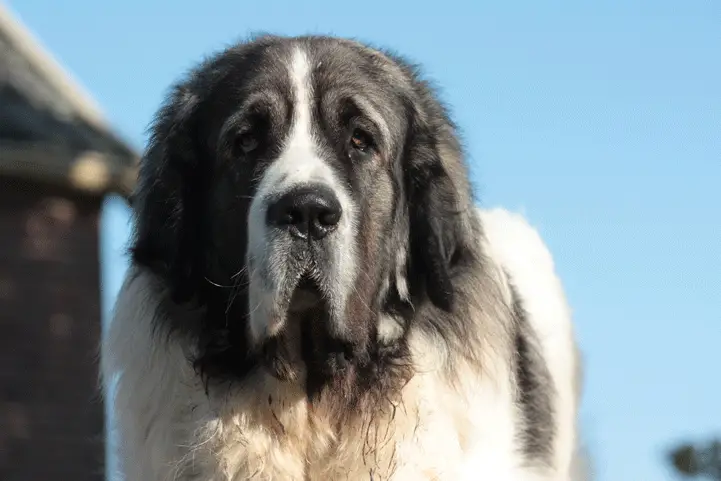
Training a Pyrenean mastiff is easy because the dogs are quick to associate a prompt (such as “sit”) with an action (such as sitting) and a reward (such as praise or a treat).
They are intelligent dogs that enjoy obedience and agility training. Training from puppy age is important because they are strong-willed dogs that quickly get set in their stubborn ways.
Begin by toilet-training and leash-training your puppy, then move on to basic commands like “sit,” “stay,” and “stop”. These dogs are motivated by dog treats and positive reinforcement during training.
Because this breed was bred for their protective nature, they can be easily trained as family guard dogs.
Pyrenean Mastiff Price
Pyrenean mastiffs are rarer and more expensive than other mastiff breeds. The cost depends on whether you buy a puppy from a breeder or adopt an adult dog from a shelter.
How Much is a Pyrenean Mastiff?
A Pyrenean mastiff puppy typically costs $1,000 to $1,800, and show-quality puppies cost as much as $3,000–$5,000. Certain circumstances affect the price, including whether you buy a puppy or an adult dog, whether or not you choose to adopt, and the demand for this breed in your local area.
Adults are cheaper than puppies, costing around $600–$1,000. Adopting this breed also incurs an adoption fee between $50 and $200.
How Much Does it Cost to Own a Pyrenean Mastiff?
The monthly cost of owning a Pyrenean mastiff is $105–$175. Recurring costs include food, walking supplies, grooming, healthcare, new toys, and training classes or dog walking services.
Is This Breed Right for You?
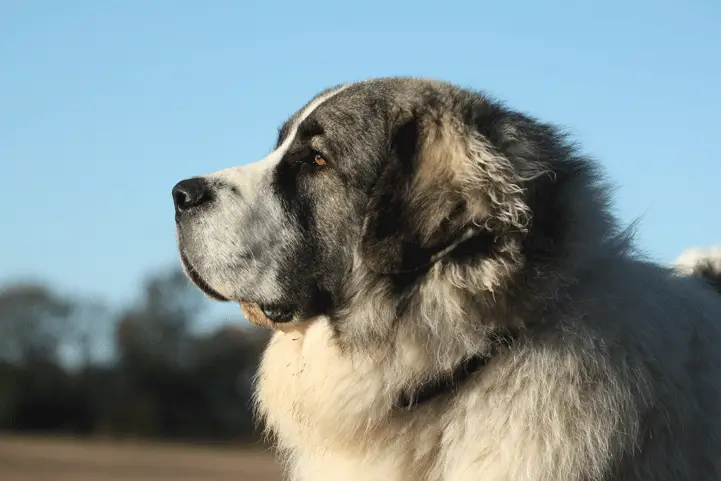
Pyrenean mastiffs are gentle, loving, loyal dogs, but they’re not suitable for some people and lifestyles.
Who Should Get a Pyrenean Mastiff?
Active, energetic people who have plenty of time to walk and play with their dog are ideal owners for this dog breed. These dogs have a calm, nurturing nature, making them good pets for families with children.
If you have the funds to raise a dog with a big appetite and high grooming needs, Pyrenean mastiffs are suitable for you.
Who Should Not Get a Pyrenean Mastiff?
People who don’t enjoy exercise, people with busy jobs, and people who spend a lot of time away from home should not choose to get a Pyrenean mastiff.
These dogs are high-maintenance, and if you don’t have enough time or money to groom, train, and feed them, consider a low-maintenance dog instead.
Additionally, if you don’t want a dog breed that drools a lot, this isn’t for you.

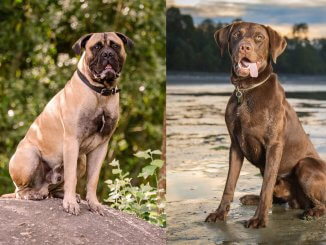

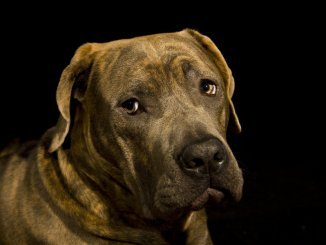
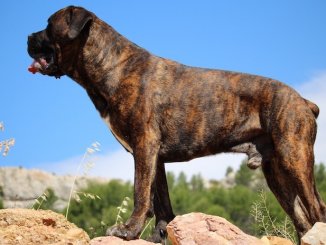


Be the first to comment